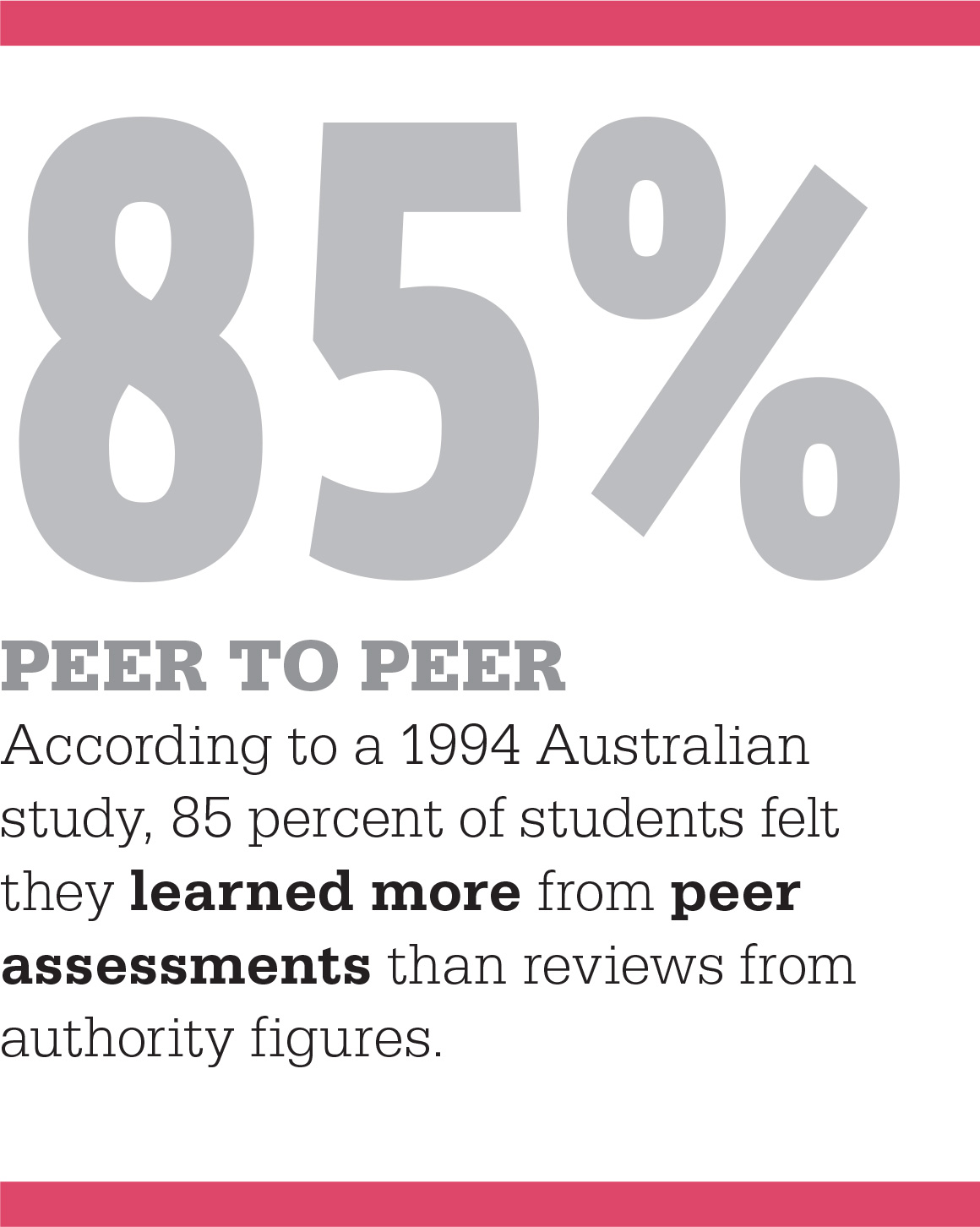
Cooperating well with others means being comfortable with feedback—both giving it and receiving it. Opening channels of response, in both directions, is often the key to a successful endeavor.
No matter how much confidence we have in our own opinions, we can all benefit from views expressed by others. Both in and out of the workplace, knowing how to gather feedback is often a significant factor in attaining success. However, you must be prepared to have your own ideas criticized—even, at times, demolished.
Taking it well
Neurological evidence suggests that we’re wired to fear criticism.There’s even some research to suggest that negative comments are processed by different, more sensitive neural circuits than those that handle positive input. Fundamentally, fear of criticism is fear of rejection. No matter how tactfully a negative comment is phrased, a part of our brain hears the threat of, “You’re fired” or, “No one will love you.” Faced with anxiety-inducing feedback—for example, a negative appraisal from your manager—try the following:
- Listen for the facts. It’s helpful to separate fact from opinion. Even if you don’t agree with the conclusions, you can often pick up good information and store it for later use.
- Consider the motivation. Is the speaker trying to help you, even if they’re being blunt? Or are they trying to reinforce their own authority or score points? These different motivations require different responses.
- Make it impersonal. If you did make a mistake, present yourself as an ally with your criticizer: “Yes, I notice I sometimes do that. What can you suggest?”
- Ask for time. If you don’t think you can respond constructively at once, say you appreciate the feedback and you’d like time to give the matter serious thought.
Giving as well as taking
Numerous studies confirm that giving feedback to people who share your goals can be at least as helpful as receiving it. Having to assess somebody else’s efforts forces our brains to think objectively about:
- The purpose of what everyone is trying to achieve
- What criteria this can be judged by
- What a good example might look like
- Possible remedies when things aren’t quite as they should be.
Such an approach will develop your critical-thinking skills in ways that can benefit all areas of your life.

bet and bear
American psychologists Patricia L. Harms and Deborah Britt Roebuck describe two different models for giving positive and negative feedback—“BET” and “BEAR,” respectively. If you have to tell someone what you think of them, follow one of these approaches:

